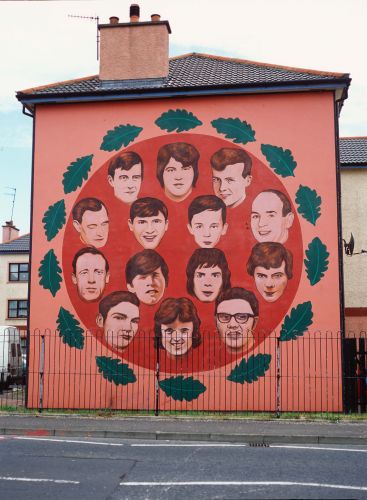
[Editor's note: This post was reported by County Clare correspondent Celtic Ray.]
Over 38 years after the incident known as "Bloody Sunday' occurred in Derry, Northern Ireland, and more than 12 years after an official investigation was finally launched by the British government, Lord Saville's inquiry has found that the killing of 14 civilians in January 1972 was "unjustified."
The 5,000 page report was highly critical of the behaviour of the British armed forces and found that all that were killed on the day in question were innocent. The report states that the victims - all unarmed - were either fleeing paratroopers or trying to come to the aid of those who had been injured.
The release of the report was greeted by loud cheers and applause by family members and their supporters gathering outside the Guildhall in Derry.
The inquiry concluded that several of the troops who provided testimony about the events lied to the inquiry and was particularly critical of one paratrooper regiment, which was deemed to have fired the 100 or so shots on the day.
Delivering the findings of the report, British prime minister David Cameron said it had found none of the casualties posed any threat to British troops. He told the House of Commons no warnings were given, and that some of the soldiers lost control.
“The Government is ultimately responsible for the conduct of the armed forces," he said. "And for that, on behalf of the Government, indeed on behalf of our country, I am deeply sorry.”
The report, completed over 12 years, investigated the mass killing of members of the Northern Ireland Civil Rights Association by members of the Parachute Regiment during a during a march in Derry on 30 January 30 1972.
The men killed on the day were Patrick Doherty (32), Hugh Gilmour (17), Jackie Duddy (17), John Young (17), Kevin McElhinney (17), Michael Kelly (17), Gerald Donaghey (17), William Nash (19), Michael McDaid (20), Jim Wray (22), William McKinney (27) and Bernard "Barney" McGuigan (41).
John Johnston (59), one of the first to be shot on the day, died from his injuries four months later.
The killings in Derry are widely recognized in retrospect as a major tripwire into the tragic era in Irish history known as "The Troubles," which have only started to subside in recent years due to the negotiation of the Good Friday Agreement.
U2 provided rock and roll fans with a touchstone of this seminal event in Irish history with their song "Sunday Bloody Sunday," an anthem which came to symbolize a consistent plea for cessation of sectarian violence throughout the region.




No comments:
Post a Comment